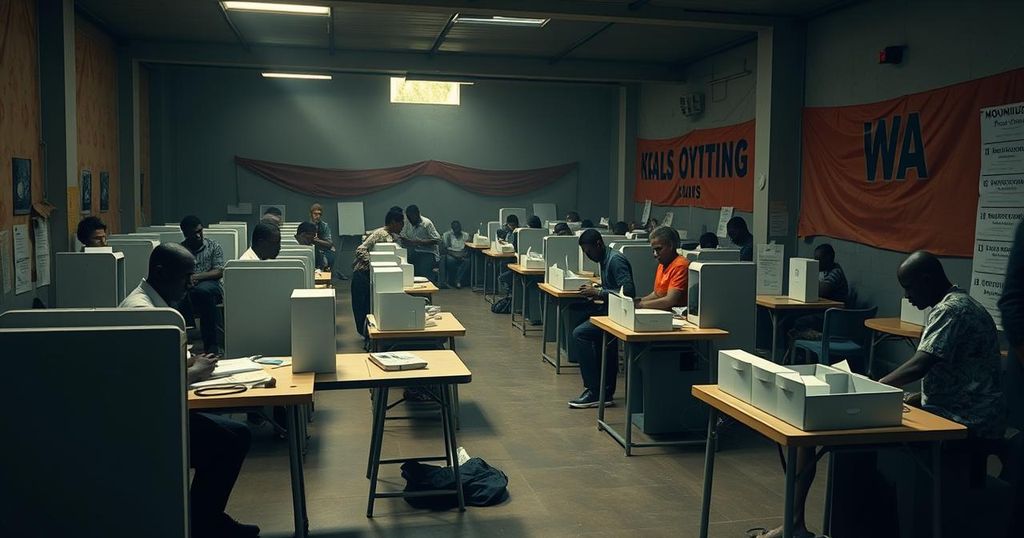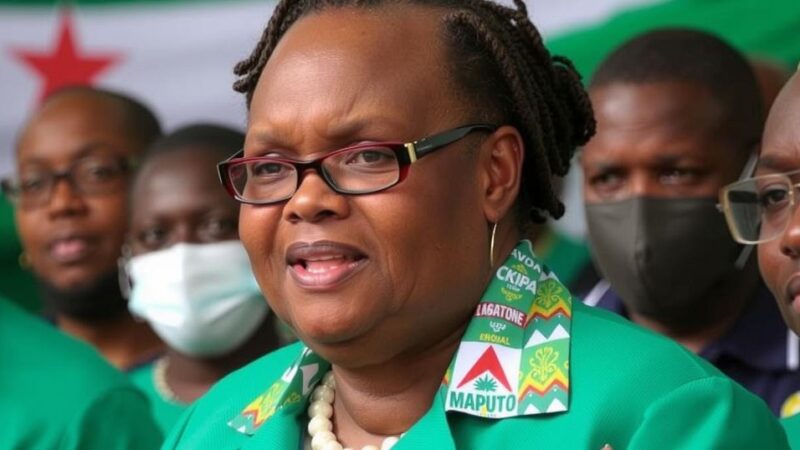The recent elections in Mozambique have prompted allegations of significant fraud from opposition candidate Venancio Mondlane, who asserts that he was improperly deprived of victory to FRELIMO’s Daniel Chapo. Issues of voter suppression, manipulation at polling stations, and even electoral interference by foreign entities have been reported, casting doubt on the legitimacy of the elections as the political landscape shifts.
The recent elections in Mozambique have sparked significant controversy, with accusations of election fraud coming primarily from opposition candidate Venancio Mondlane. Although official results are yet to be announced, preliminary tallies indicate that the ruling party, the Liberation Front of Mozambique (FRELIMO), led by candidate Daniel Chapo, is poised for victory. In the presidential race, Mondlane, a former member of the National Resistance Movement (Renamo), claims to have been the victim of substantial electoral fraud. He stated, “What we are seeing here is election rigging of the highest order,” asserting that such irregularities have become a hallmark of past elections. Reports reveal that in the capital city of Maputo, Chapo reportedly received 53.68% of the votes, while Mondlane attained 33.84%. The elections were similarly contentious in Cabo Delgado, where Chapo won approximately 66% of the votes, with Mondlane earning 22.64%. FRELIMO’s representatives maintain that the results reflect the democratic will of the people, with party secretary Antonio Niquice asserting, “These are fair results that reflect the will of the people. These elections were very transparent.” Nevertheless, Mondlane’s allegations of widespread fraud include claims that thousands of eligible voters were removed from the rolls, particularly in areas known for Renamo support. Manuel de Araujo, Renamo’s candidate for governor in Zambezia, criticized the electoral authorities for a lack of organization and insufficient resources at polling stations, which he argues severely hindered the electoral process. Additionally, he reported finding pre-filled ballots favoring FRELIMO, a matter he has escalated to the prosecutor’s office. Further complicating the situation, issues were reported regarding voter participation from Mozambican diplomatic missions abroad, particularly in Zimbabwe. Reports indicate that individuals without proper Mozambican identification allegedly participated in the elections, purportedly organized by the ruling Zanu-PF party of Zimbabwe to support FRELIMO. A Zimbabwean publication detailed how former Zanu-PF officials expressed pride in voting for FRELIMO, raising alarms of potential cross-border electoral interference. As the election fallout unfolds, the ramifications for both Renamo, historically viewed as the principal opposition party, and the legitimacy of the electoral process in Mozambique continue to grow more severe, prompting calls for independent investigations into the allegations.
Following Mozambique’s independence nearly fifty years ago, FRELIMO has maintained significant political control over the nation. The country’s electoral landscape is notably turbulent, especially in regions such as Cabo Delgado, which has suffered from violent insurgency. In this context, the 2024 presidential elections have ignited fierce debates surrounding electoral integrity, with opposition voices alleging systematic voter suppression and manipulation. These elections are particularly critical as opposition parties grapple with shifting dynamics, particularly the emergence of emerging political factions like the Podemos party, which has garnered support in the absence of strong Renamo leadership.
The allegations of election fraud in Mozambique threaten to undermine the legitimacy of the electoral process and challenge FRELIMO’s long-standing reign. Particularly concerning are the claims from opposition leaders about voter disenfranchisement and organized manipulation, alongside reports of foreign electoral participation. As the situation develops, the demand for transparent and independent investigations becomes increasingly urgent to ensure the public’s faith in democratic governance.
Original Source: www.dw.com







